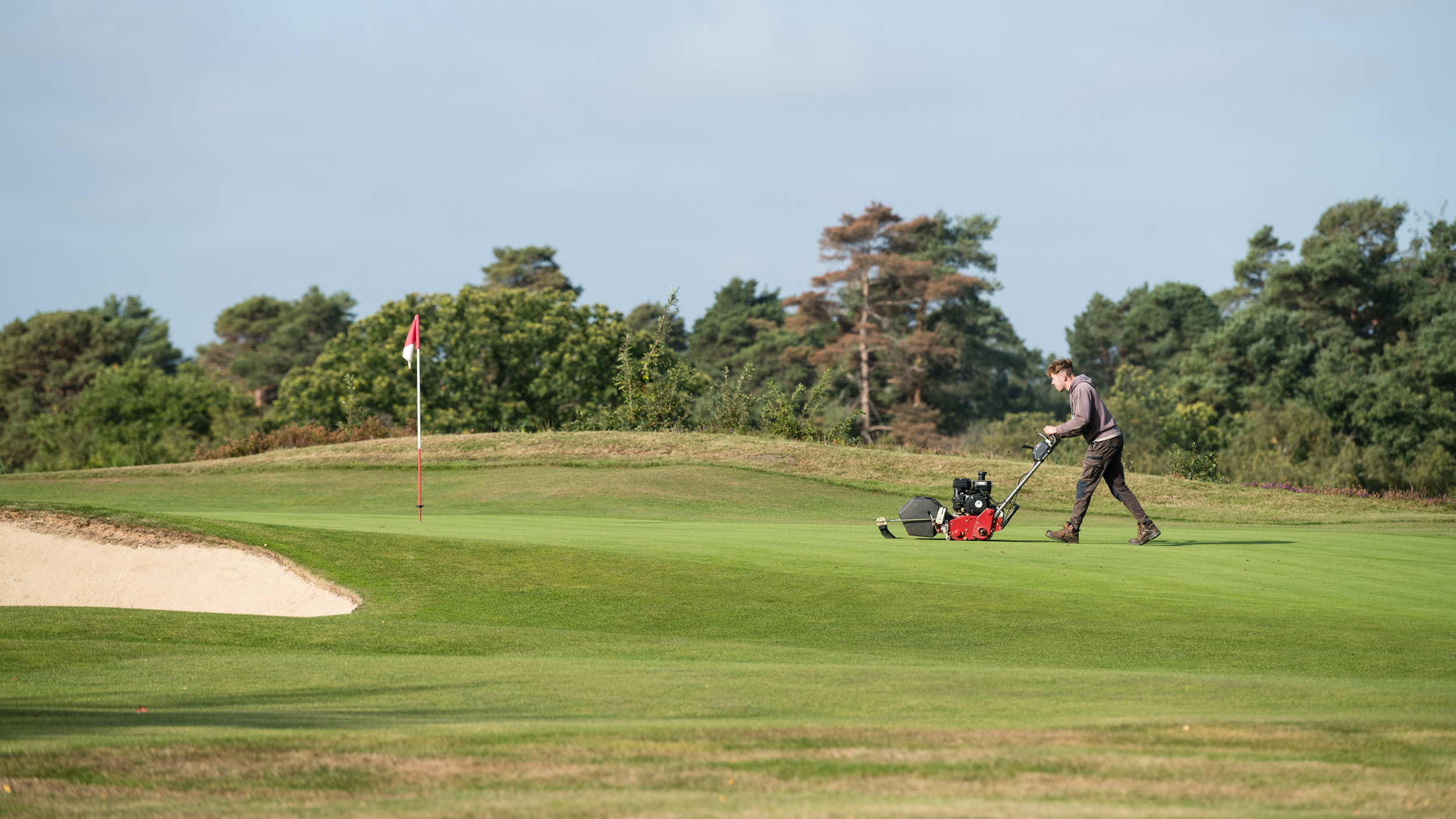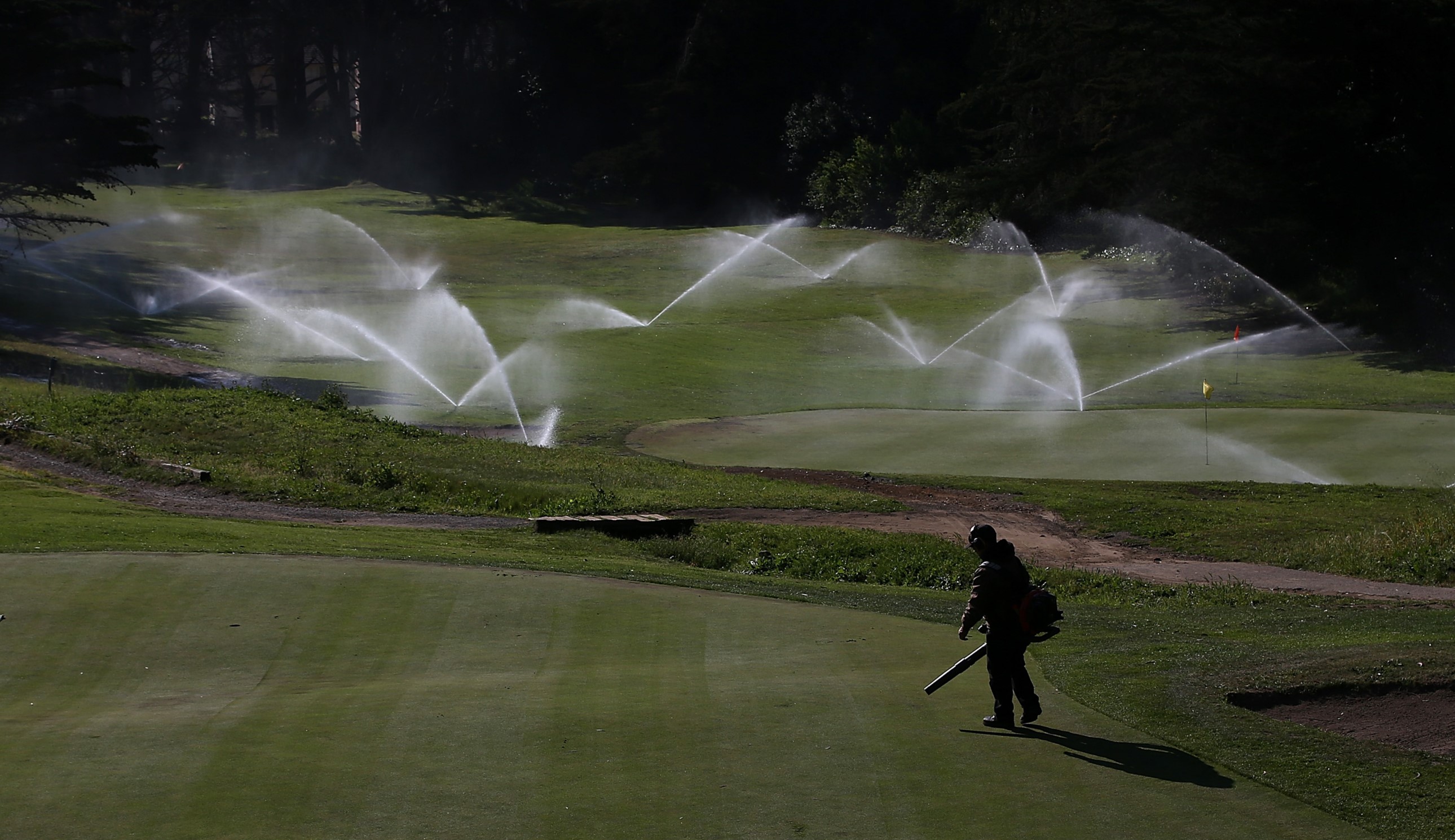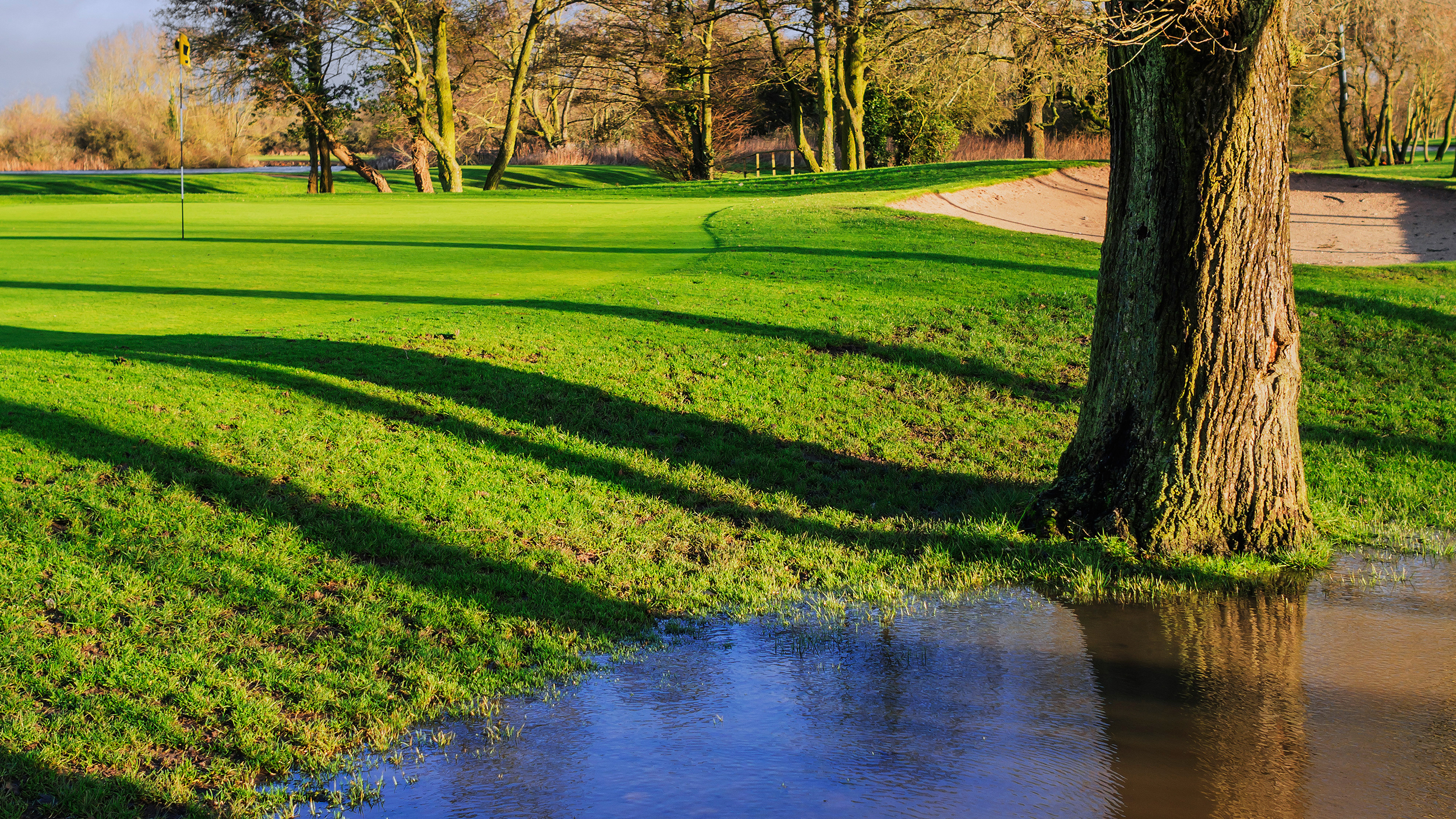'Why Didn't I Do This 20 Years Ago?' - Two Course Managers Share Their Unique Insight Into The Best And Worst Parts Of Being A Greenkeeper
Langley Park's Wayne Aris and Jeremy Ward of The Grange GC tell Golf Monthly why being a greenkeeper is great as well as what the most challenging part of their job is


For a lot of golfers, being a greenkeeper might be quite high up on their list of alternative careers. Being outside on a well-manicured golf course, enjoying those early mornings with only the birds to keep you company, and the satisfaction of looking on at a freshly-mown fairway.
But, if I can bring you back down to this planet for a second, what about the other side? Heading out in ALL weathers to minimize any potential damage, dealing with complaints from unhappy players who think the 13th green is a bit too bumpy, and keeping on top of the leaves during the months where trees like to make a mess.
While it's not all sunshine and rainbows in the greenkeeping industry, there are plenty of positives to ensure the people who maintain your local golf course keep coming back. Two British ground staff recently spoke to Golf Monthly about their favorite - and least favorite - aspects of the job...
THE BEST THING ABOUT BEING A GREENKEEPER
Wayne Aris is the course manager at Langley Park Golf Club in Kent, a layout originally designed by five time Open Champion, John Henry Taylor and used since in regional qualifying for the Open Championship.
Having joined when he was 17, Aris has spent the past 16 years working his way up through the system and gaining all of the relevant qualifications in order to reach his current management position.
Asked what kept him in the industry for such a long time, he said: "The best part is probably around job satisfaction. When you know you’ve got the course looking good and the weather’s really nice and you can just sort of look back and take a moment, knowing that you and your team have done a good job.
"And, also, when you’re getting lots of good comments from your biggest competitors and the members are happy. I’d say job satisfaction is probably what keeps a lot of greenkeepers in the industry."
Get the Golf Monthly Newsletter
Subscribe to the Golf Monthly newsletter to stay up to date with all the latest tour news, equipment news, reviews, head-to-heads and buyer’s guides from our team of experienced experts.

Jeremy Ward is another member of the British and International Golf Greenkeepers Association (BIGGA) who pointed to feelings of pride when asked about the best part of his job. Ward is the course manager at The Grange Golf Club in Rotherham - a par-71 layout that is hoping to rediscover its place as one of the best courses in Yorkshire.
Having previously worked in several different industries and even owned his own restaurants, the 50-year-old admitted there is nothing quite like working on a golf course and said his latest "buzz" is trying to give The Grange its sparkle back.
Ward said: "The best thing is that you’re out on a mower in the summer, you’re cutting fairways - for example - and you’re doing the greens, and the sun is out with all the members playing. And you’re doing your job out in the beautiful countryside, which you love.
"It’s quite difficult to sum up a job that you’ve fallen into, but you do think: “why didn’t I do this 20 years ago?” My job as course manager at The Grange is to help put this place back on the map, and that’s a real buzz for me.
"What I’m really looking forward to is getting out there and being able to cut and shape the course to make it really appealing to the eye. I want to take the greens from where they are now, to something that’s positive so that people who may have left think: “this place is back on the map" and then the membership grows again."

THE WORST THING ABOUT BEING A GREENKEEPER
When we spoke to all of the greenkeepers in this mini feature and asked them what their least favorite part of the job was, the one subject that kept on cropping up was the weather. The fact that they were lacked control over the conditions and the fact that members were often disgruntled that they couldn't play golf after a torrential bout of rain which then led to complaints in the ground staff's direction.
Describing how 2023 as a whole was the worst aspect of his job due to record levels of rain, Ward admitted a greenkeeper's state of happiness is nearly always based on the weather.
He said: "2023 - that’s the worst part of the job - because your hands are tied. You’re just not able to do anything. Unfortunately, it’s all weather-based. The good, the bad, and the ugly is the fact that you’re in there when it’s absolutely throwing down and you can’t do what the members expect because you’ll get stuck or you’ll make a mess."

So, does he think the members always understand how tough it can be to do his job? And do they have enough sympathy when conditions on the course are not at their usual levels, even if that may be out of Ward and his team's control?
"Overall, probably not," admitted Ward. "When somebody updates the course status in the morning to say it’s closed after they’ve done a course walk, it's very easy to look outside your window and say “well, it’s not raining now.” But they’ve forgotten the last three or four days because they’ve not played or they've not wanted to play.
"And then, when something is not cut precisely or manicured like it used to be, people say: “you’re not doing that very well, are you?” It’s not every member or golfer, but I don’t think they do."
The new course manager at The Grange said there is a simple solution to the minority who do complain, though - education.
Ward continued: "There’s too much of a generalisation around what they think we should be doing and not enough understanding of what is actually happening. There is an education level to it where you need to be able to say to somebody “this is why we're doing it. This is what it’ll produce after.” We're all golfers and nobody likes putting holes in a green and all that kind of stuff, but if people knew why we did it then I think it would help."

Turning attention back to Aris - course manager at Kent's Langley Park - he echoed the sentiments of Ward around being out of control when the weather hits.
Aris acknowledged that his own expectations are very high, and sometimes it can be difficult to meet them when not everything falls in his favour as he aims to paint the perfect picture.
He said: "The worst part is certain things not being in your control. Everything is kind of subject to the elements and the weather, and sometimes that has a very negative effect on how you can present the course.
"Our standards are subconsciously getting higher and higher each year, and you quickly get brought back down to earth when you have a harsh winter and you physically can’t get the course in the condition you want it to be in. But saying that, all the members through the winter still seem pretty content and pretty happy, so I think it is just a case of our standards getting higher."

Jonny Leighfield is our Staff News Writer who joined Golf Monthly just in time for the 2023 Solheim Cup and Ryder Cup. He graduated from the University of Brighton with a degree in Sport Journalism in 2017 and spent almost five years as the sole sports reporter at his local newspaper. During his time with Golf Monthly, Jonny has interviewed several stars of the game, including Robert MacIntyre, Ian Poulter, Lee Westwood, and Joaquin Niemann. An improving golfer himself, Jonny enjoys learning as much about the game as he can and recently reached his Handicap goal of 18 for the first time. He attended both the 150th and 151st Open Championships and dreams of attending The Masters one day.
-
 Volvo China Open 2025 Picks, Odds And Predictions
Volvo China Open 2025 Picks, Odds And PredictionsFollowing a break for The Masters, the DP World Tour returns for the final two weeks of its Asian Swing and the Volvo China Open is the penultimate event
By Jonny Leighfield
-
 Rory McIlroy's Sports Psychologist Explains Why He 'Didn't Talk' To Bryson DeChambeau In Masters Final Round
Rory McIlroy's Sports Psychologist Explains Why He 'Didn't Talk' To Bryson DeChambeau In Masters Final RoundDeChambeau raised eyebrows at Augusta National when claiming that McIlroy wouldn't engage in conversation during the final round of The Masters
By Jonny Leighfield